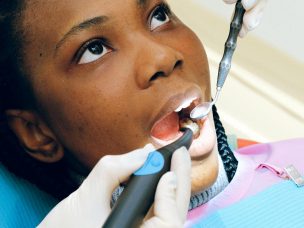In this MD Newsline exclusive interview with dermatologist Dr. Victoria Barbosa, we discuss how to provide culturally sensitive care and overcome language barriers.
MD Newsline:
How have you been able to implement culturally sensitive care in your practice?
Dr. Victoria Barbosa:
“For me, the first step in providing culturally sensitive care to patients is approaching each individual with humility and respect. We all come from different backgrounds and have different worldviews, but we have to respect that our patients have different worldviews than we do. So, it’s really important to recognize that we may come from different perspectives, but we’re there for the same purpose, which is for us to treat them as our patients.
One of the things that I think is important for maintaining an open mind is being open to meeting different people and experiencing different cultures as much as you can in your personal life because that opens your mind so you can be sensitive to other people’s cultures in the office.
For example, in my clinic, a lot of my patients have hair coverings. But sometimes the hair coverings are for covering hair loss, and sometimes they’re for religious purposes. And so, I don’t just say, ‘take off the scarf. Take off the wig. I’m fifteen minutes behind.’ I ask, ‘are you comfortable now to take off your hair covering? Do you need my male medical assistant to step out of the room?’
So, I think you have to ask patients questions to make sure that they understand that you’re respecting them and trying to make them feel comfortable.”
MD Newsline:
How do you deal with language barriers so that they don’t impede your ability to deliver quality care?
Dr. Victoria Barbosa:
“Language barriers come up frequently in clinic. And there are really two different scenarios.
In the first scenario, we have patients for whom English is not their first language or who don’t speak English at all. And, of course, in that situation, it is important to have a medical interpreter. These patients often bring relatives with them to the visit to help interpret, but that’s really not enough. It’s important to have a trained medical interpreter to make sure that all the important information that you’re trying to convey gets conveyed appropriately.
And then, there’s a second scenario that’s a little more subtle. And that is, sometimes, there are patients for whom English is their first language, but the way we communicate and the way they receive information is a little different. And this happens a lot.
So, what I try to do is make sure that I can communicate the full breadth of the information in a way that is easy to digest and understandable in language that most people would understand. And what I like to do if I’m not sure that my message has been fully received is I ask my patient to repeat back to me what they heard. And that way, I have the opportunity to correct any misunderstanding or misinformation right on the spot rather than in a message weeks later.
So those are my tips for how to handle language barriers in the office.”
Responses have been condensed and lightly edited.









